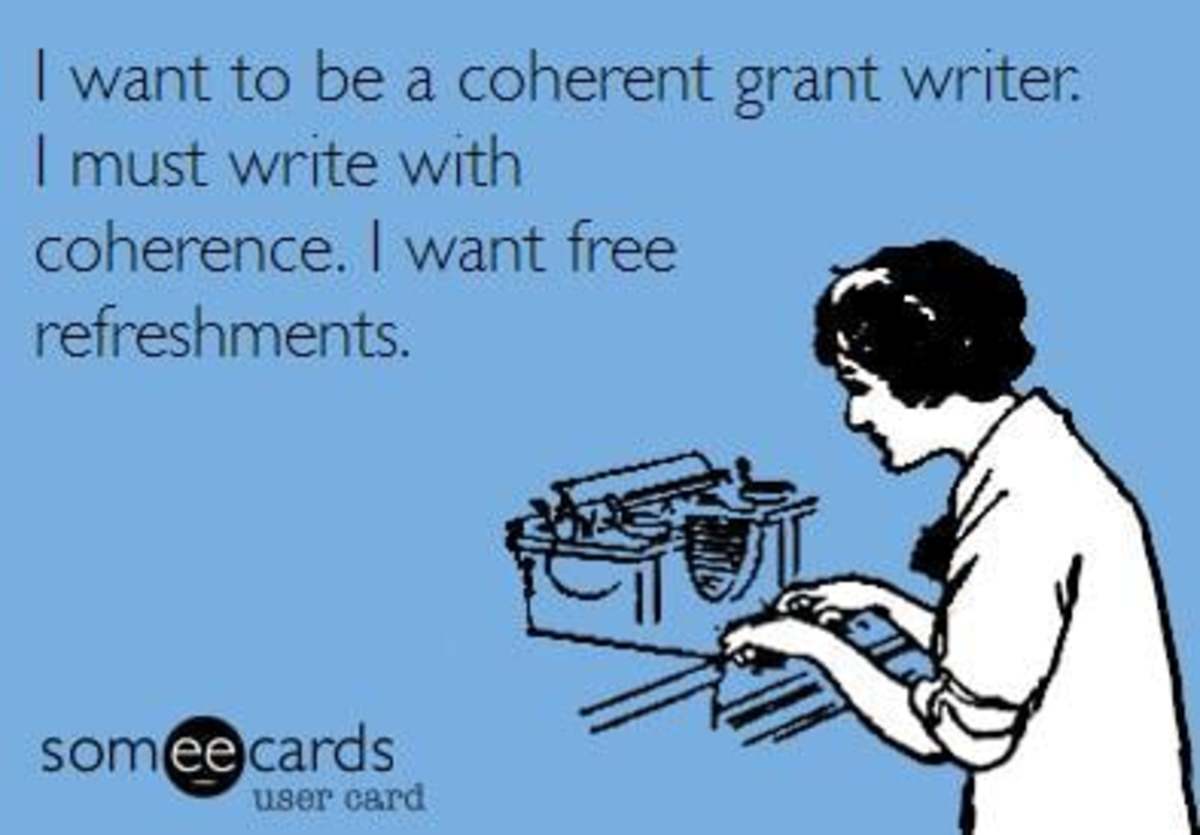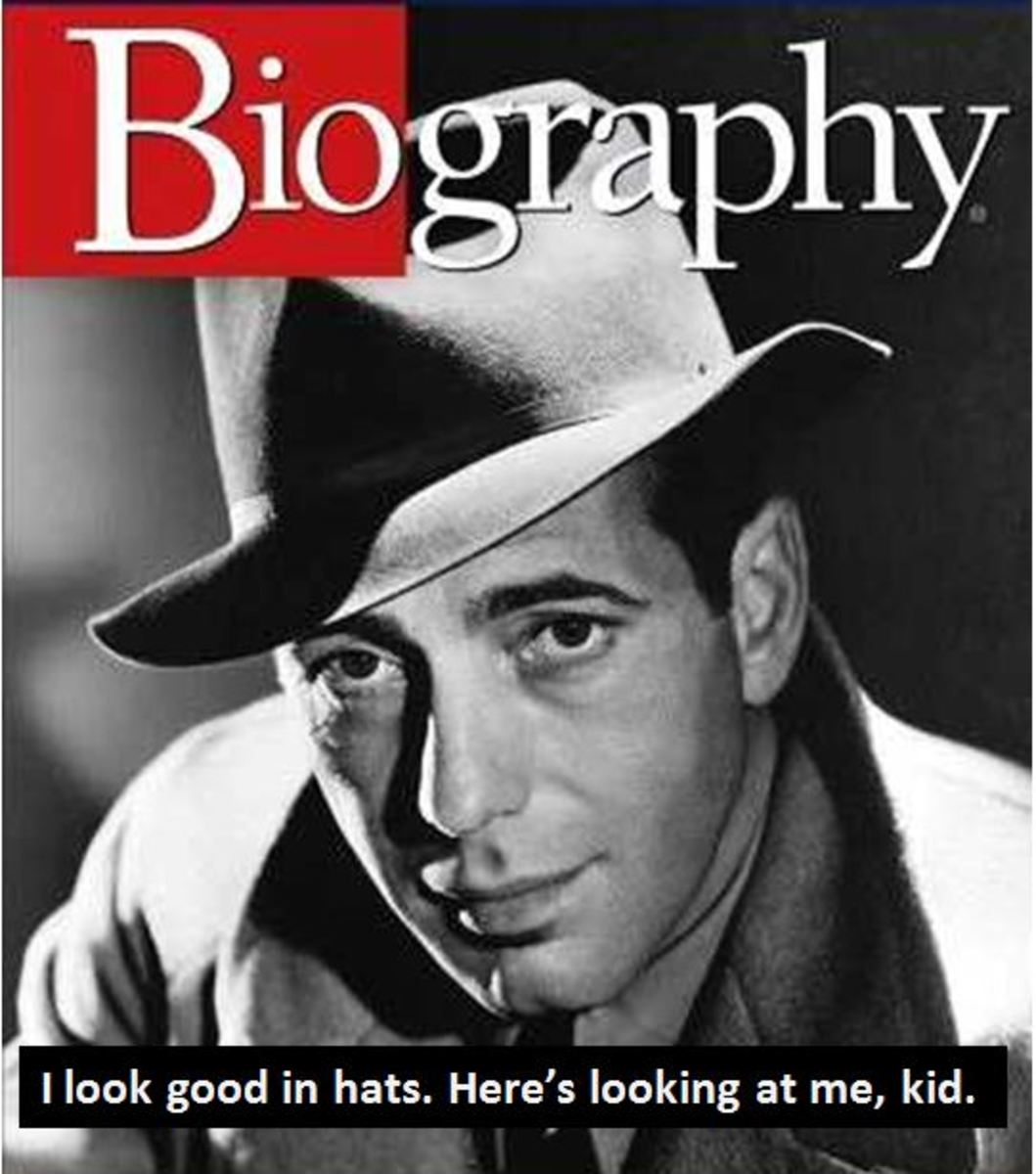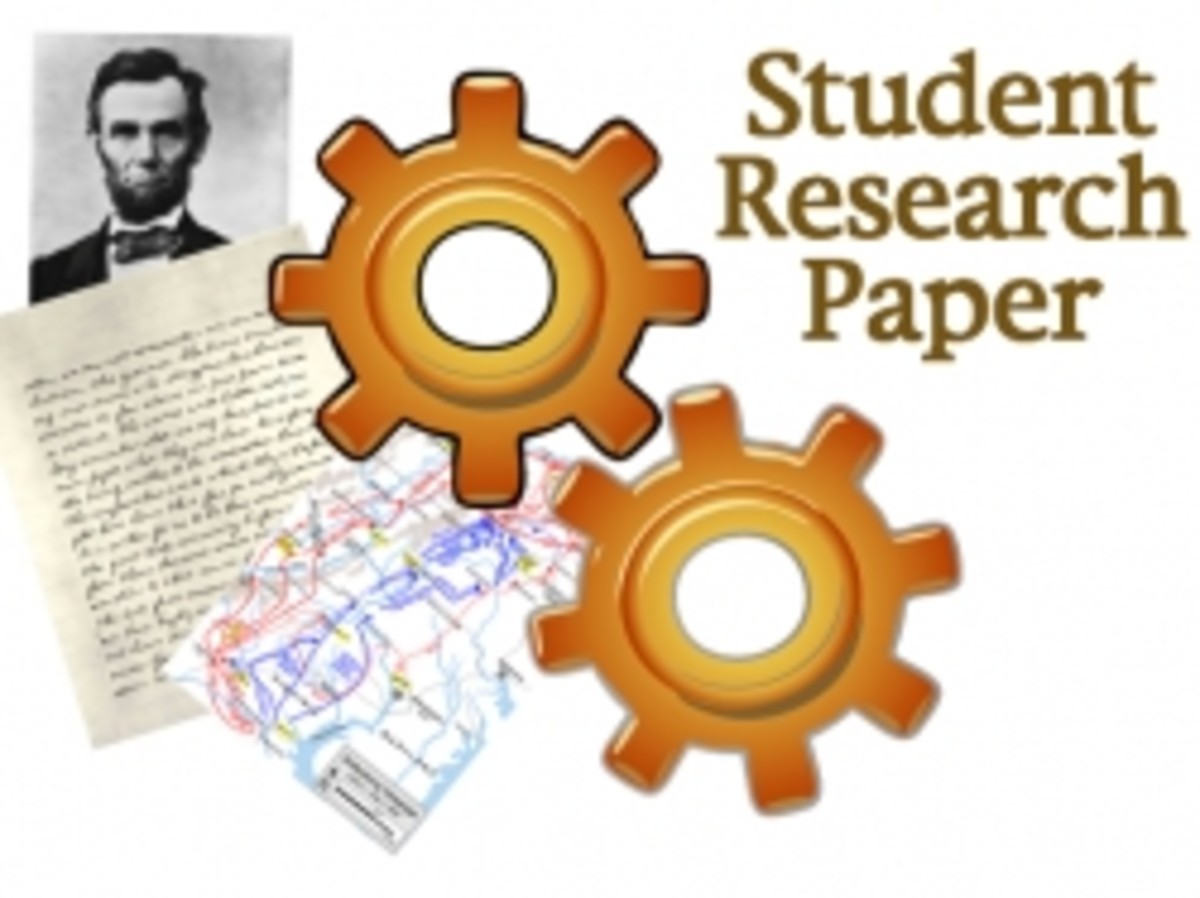How to Write Great Term Papers for College
Avoid these common mistakes when you write your research papers!


Tips to Get Good Grades on Term Papers
As a university instructor and a longtime editor and writer, I cringe when seeing common writing mistakes that are all too easy to avoid. Here are some easy tips to help you write like a polished professional. If you're writing a research paper, you can get a higher grade if you follow these tips:
The First Step is Research!!!
Tip #1: Do real research and base your content on the facts you uncover rather than what seems to be the popular viewpoint or your own opinion. While it's true that many writing venues and genres have their origin in personal opinion and experience, many professional venues want objective writing. For your resume, check out the job description and gear it to reflect the person they want to hire. In college, unless you're in a creative writing class, standard research papers in higher learning are not for blog-style writing.
Tip #2: Avoid first-person language (again, there may be exceptions in creative writing classes). This is true in your resume, as well as when you're writing for college credit. If you're writing about the Roman Empire, the instructor will want to know facts about that era, not your opinion or what you think.
Tip #3: For research papers, if you're presenting an argument, state it in your first paragraph, then back it up with credible research. This means you'll need to decide ahead of time the slant you want to take on your paper (which you can do after your research and before you write, if needed), and then cite valid sources to show why your premise has merit.
Tip #4: Avoid citing sources like Wikipedia! I know, Wikipedia is interesting and has a ton of information, but many colleges and universities do not permit its use as a source for research writing. You can, however, use it to explore other sources for your research and bibliography. I like Wikipedia, too, but if your instructor tells you not to use it, you'll only raise red flags if you don't follow the guidelines. If you're doing freelance work, the guidelines are similar to those for college classes. Cite the direct source for your facts, not a compilation published by another person.
Tip #5: Make sure you get citation information as you gather your research information. You'll save considerable time if you get the author's name, publication information, page number (if needed) and other bibliography data as you go along. Otherwise, you'll be scrambling to fill in those blanks at the last minute.
Tip #6: Beware of citing information from Websites unless the original source is very clearly stated. There are indeed many sites with credible facts and solid information. But there are far more sites that are not valid sources for research. Check the online bibliography information to see if the site's content is based on true data or academic research.
How to Do Research for a College Essay | Term Paper

How to Write a Research Paper | Essay
You've done your research; now you're ready to write! Get through the usual procrastination stage (we all have it - I've been known to clean my refrigerator or do ironing while I'm stalling on a project). Use your 'denial' time to think about what you want to argue in your paper and come up with creative first-line language.
Here are a few tips on good writing style:
First Sentence: Whenever possible, avoid starting the lead sentence in a paper or section (especially the first one in a paper) with the word "The." This sounds like a dumb rule, but I guarantee you'll write more creatively if you come up with lead sentences that don't start with "The."
No Passive Voice: People often have trouble understanding what 'passive voice' means. Briefly, an 'active voice' will say the subject did the action. In 'passive voice,' the object receives the action. "The boy hit the ball" is active voice. "The ball was hit by the boy" is passive voice. The same rule goes for inanimate objects. "The book was on the table" is active voice, whereas "The Table held a book" is passive voice. After a while, you'll begin recognizing the difference, and your instructors will notice it, too!
Sentence Construction: Make certain your sentences make sense. After you've written a few pages, set the paper aside for a bit and then reread it. Watch for clumsy sentences such as, "Pioneers traveled across the continent in wagon trains for many years." Are you saying the same people spent years in the same wagon train? Or are you saying wagon trains were the mode of transportation for many years? A more graceful construction would be, "For many years, pioneers traveled across the continent in wagon trains."
Avoid Plagiarism: The fastest way to get an "F" or to be expelled or suspended is to fail to cite references properly in your papers. If you paraphrase a source, you can write it without quotes but word it differently, and attribute it to the source in the same text. If you use a statement word for word, you will need quotes. For example, you can either say, 'According to Smith, broken pipes are the leading cause of flooded homes' or you can say, 'Joe Smith, plumbing expert, said, "Broken pipes cause more leaks than anything else"' to cite that source. However, if you say, "Broken pipes cause more leaks than anything else" without citing Joe Smith, you have just plagiarized.
Note: Don't think you can get by with using material that hasn't been properly cited. Instructors have learned to spot such things, and there are software programs we use to search for plagiarism. Don't plagiarize in online posts, either, if your class includes discussion boards.
Other Issues: Unfortunately, there are 'paper mills' where students download and pay for academic material (including finished products) online. A good instructor will spot papers that have been purchased. Yes, really. We learn to recognize students' writing styles, and it's fairly obvious when you see one style of writing all semester and then a completely different style shows up on a paper. Furthermore, some papers have been sold to more than one student and professors have begun seeing them come through from multiple times.
Organizing a Paper - Video
Common Mistakes to Avoid in College Term Papers | Essays
Some errors are so common they have almost gained the status of being the 'right' way to write something. Almost, but not yet! Here are a few of my pet peeves:
Who and whom: This one is tricky. You would say, "Who has the ball?" but (for multiple reasons) you wouldn't say, "Who do I give the ball to?" The right way to say it is, "To whom do I give the ball?"
It's and its: If you're saying 'it is,' then you'll need the apostrophe. However, if you're showing possession, you do not use it. I know that's counter intuitive; you're used to using an apostrophe to show ownership, but trust me on that one. Write, "The university's enrollment is high" to show the enrollment belongs to the university. But if refering to the university as 'it,' you'll write, "Its enrollment is high."
Its or theirs? To expand a bit on the above example, you would not write, "Their enrollment is high." A large organization (a firm, store, agency, university, etc.) becomes an 'it' in writing. The word 'their' refers to people. "Its workforce is large" for a corporation and "Their family is large" for people.
Dangling words: Watch for words such as 'to' and 'at' at the end of sentences. Phrases such as "Where are you going to?" or "Where are the books at?" are wrong, wrong, wrong! The two examples just mentioned should be rewritten this way: "Where are you going?" (you don't need the 'to,' the fact that they're going somewhere tells us there's a destination) and "Where are the books?"
Your and You're: If it's a possession, you say, "Your book," but if it's the contraction of 'you are,' you say "You're." I've also seen people write 'yore,' but that's an entirely different type of writing problem.
Apostrophes in certain cases: If the name (or place) ends in an 's,' the apostrophe generally stands alone without another 's' at the end. Examples: "He read Jesus' teachings," or, "He borrowed James' book." I know this looks odd, but that's the way it's written.
Whose and Who's: Similar to you're and your, pay attention to what you're saying. "Who is" can be condensed to "Who's." Whose, however, refers to ownership or possession, such as "Can you tell whose car this is?"
There, They're and Their: Another easy one to overlook. If you're pointing out something, you will say, "There is the house." If you're describing other people, you will say, "They are," or "They're". If possession is involved, write "Their car," or "The car is theirs." As with 'its' there's no apostrophe in 'theirs.'
Modifiers and hyphens: We use modifiers to describe things, but we do not always hyphenate them. Your instructor will be impressed if you know the difference. If a modifier ends in 'ly' you do not need a hyphen, as in "The beautifully decorated home." The 'ly' at the end of 'beautiful' indicates the word is modifying something. If the word does not end that way, you use a hyphen, as in, "The well-written book."
Semicolons: I really like it when I see someone using a semicolon correctly; I can see they know how to write well. The previous sentence is an example of when to use a semicolon. Both phrases can stand alone as separate sentences, but to emphasize your point or to show the second phrase is an expansion on the first phrase, you can keep them in the same sentence and separate them with a semicolon (not a comma). Commas are used to separate things in a series, such as the pot, pan, stove and refrigerator.
Importance of Proofreading Essays | Term Papers

Everyone gets writers' block at times!

Don't be Afraid to Write!
Just like any other skill; you can learn to be a good writer, and even a great writer. You will indeed succeed! These are just a few tips on refining your writing. Obviously, there's no way to cover everything in a short article, but this list should help you know what to look for in your own work.
One important tool is the APA Manual of Style - all universities honor its guidelines. It can be hard to follow (sorry - just trying to be truthful!), but it's an essential investment for any college student.
Also - check out the great Online Writing Lab (OWL) offered by Purdue University. This link is easy to use, free, and has most of the information you need to write a coherent paper and cite your references properly.
If your goal is writing for a newspaper or magazine, you may need a more specific guide that targets that market. Consider buying one of the style books used by newspapers and magazines (the Associated Press puts out a good one). You can often find used copies at university book stores or online.
The Chicago Manual of Style is another widely used source for what works and what doesn't work; it is often used for legal writing and for major academic works, but it is huge and costs a lot more than other guides. There are a few differences in the styles, but a basic style guide used by news writers should serve you well and help you avoid making some very common mistakes.








